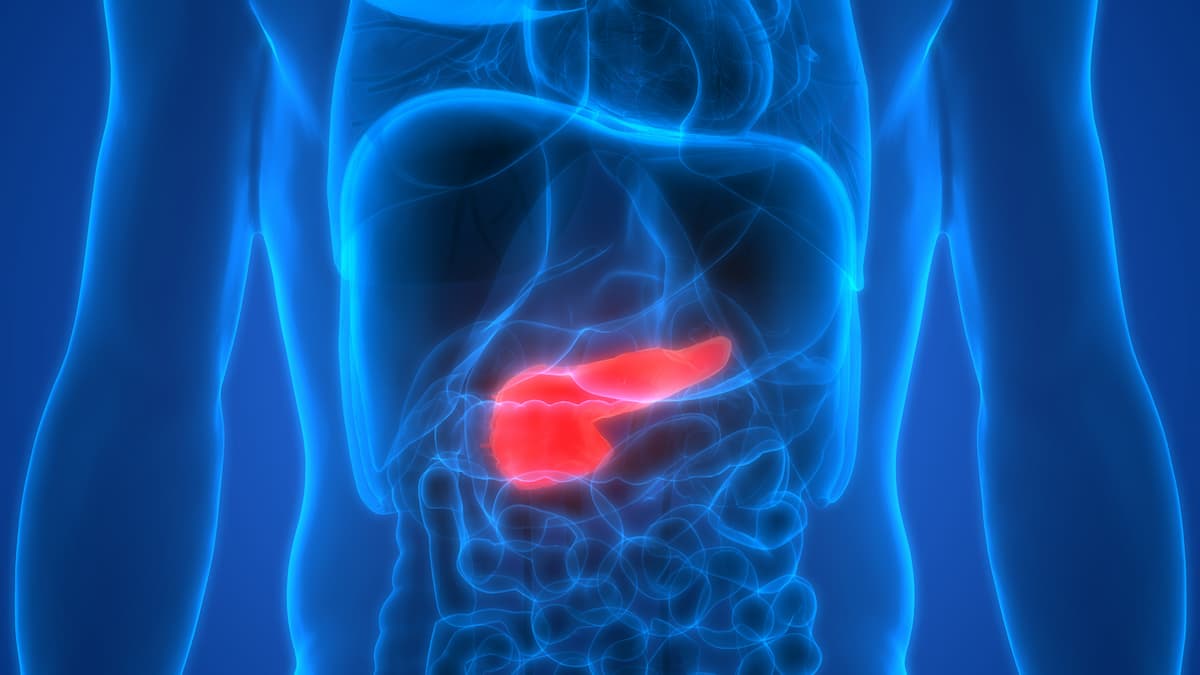Narmafotinib Earns FDA Fast Track Designation in Advanced Pancreatic Cancer
Data from the interim analysis of the ACCENT trial showed promising signs of efficacy with narmafotinib combination therapy in advanced pancreatic cancer.
Previously, narmafotinib received orphan drug designation from the FDA for the treatment of pancreatic cancer.

The FDA has granted fast track designation to narmafotinib, a focal adhesion kinase (FAK) inhibitor, for the treatment of patients with advanced pancreatic cancer, according to a press release from Amplia Therapeutics Limited.1
The fast track designation is reserved for drugs that have shown a potential improvement in efficacy over currently approved therapies for serious diseases and conditions, enabling expedited drug development and potentially improving patient outcomes. Narmafotinib may become eligible for accelerated approval and priority review. Previously, narmafotinib received orphan drug designation from the FDA for the treatment of pancreatic cancer.
"Fast track designation for narmafotinib is a significant milestone for the company,” Chris Burns, PhD, chief executive officer and managing director at Amplia, stated in the press release.1 “With this designation, we can work more closely with the FDA to accelerate our clinical program and gather the most compelling evidence for regulatory approval in this devastating disease."
Previously, data from the interim analysis of the open-label phase 1b/2a ACCENT trial (NCT05355298) were presented at the 2024 American Society of Clinical Oncology (ASCO) Annual Meeting.2 Investigators of ACCENT evaluated the pharmacokinetics, safety, tolerability, and efficacy of narmafotinib in combination with gemcitabine and nab-paclitaxel as first-line therapy for advanced pancreatic cancer.
In 14 patients, narmafotinib was shown to be generally safe and well-tolerated. All patients elected to continue on narmafotinib following their first 28-day cycle. Nine of 14 patients have remained on trial therapy for 5 months or longer. Partial responses have been confirmed in 6 patients, with 4 receiving the 400-mg dose and 2 receiving the 200-mg dose. One patient who received 400 mg of narmafotinib experienced a dose-limiting toxicity consisting of grade 3 nausea. Grade 3 or lower fatigue was reported in multiple patients.
The single-arm study consists of 2 stages. Patients were initially enrolled in a 3+3 design to determine the recommended phase 2 dose (RP2D), with narmafotinib dose escalation of 100 mg, 200 mg, and 400 mg. Pharmacokinetic samples were collected on days -8, -7, 1, 3, 8, and 10 of the run-in portion or cycle 1. Following the initial stage of the trial, patients were evaluated in a Simon’s two-stage design.
The trial’s primary end points include treatment-emergent adverse effects, the RP2D in part A, and overall response rate per RECIST v1.1 criteria in part B. Secondary end points across all phases include the plasma concentration of narmafotinib, duration of response, overall survival, progression-free survival, time to progression, and clinical benefit rate.
Patients in ACCENT were required to be 18 years or older with a confirmed histological or cytological diagnosis of advanced pancreatic adenocarcinoma that is not surgically resectable, with initial diagnosis of metastasis confirmed within 6 weeks of baseline.3 Patients were also required to have measurable disease, an ECOG performance score of 0 or 1, adequate organ function, and a life expectancy greater than 3 months.
Excluding factors included pregnancy, brain metastases, and recent malignancy other than in situ cancer or basal or squamous cell skin cancer in the preceding 5 years.
Following the interim analysis, investigators of part B of the trial began recruiting patients in Australia and South Korea as part of the phase 2 expansion cohort. Additionally, investigators selected 400 mg as the RP2D for narmafotinib based on findings from the phase 1b portion of the trial. The ACCENT trial is ongoing in Australia and South Korea.
References
- FDA fast track designation for narmafotinib in advanced pancreatic cancer. News release. Amplia Therapeutics Ltd. September 19, 2024. Accessed September 20, 2024. https://tinyurl.com/2y5zmv4u
- Burns C, Cock T-A, Bishop A, et al. Phase 1b/2a of narmafotinib (AMP945) in combination with gemcitabine and nab-paclitaxel in first-line patients with advanced pancreatic cancer (ACCENT trial): interim analysis. J Clin Oncol. 2024;42(suppl 16):e16337. doi:10.1200/JCO.2024.42.16_suppl.e16337
- ACCENT: AMP945 in combination with nab-paclitaxel and gemcitabine for treatment of pancreatic cancer. ClinicalTrials.gov. Updated March 6, 2024. Accessed September 20, 2024. https://www.clinicaltrials.gov/study/NCT05355298